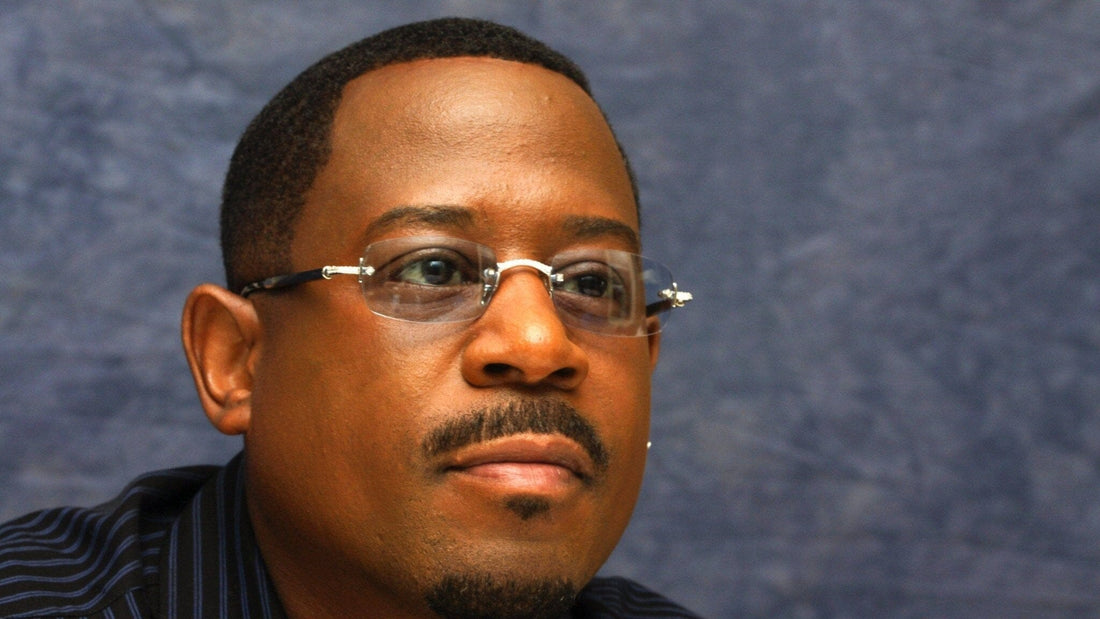
Black Star Inspiration: Martin Lawrence
Share
Bohten's lineage can be traced back to a long and storied history of black cultural innovators. Each week, we celebrate the style inspiration of legendary icons who flawlessly express their flair through lenses.

Martin Lawrence is a stand-up comedian, actor and producer with a string of top films behind him.
He won a NAACP Image Award two years in a row for his work on the sitcom, Martin. He is, without a doubt, an inspiration to many through his own work and through his partnership with Will Smith.
Martin Fitzgerald Lawrence was born in 1965, while his father John was serving in the US military. He is named after two significant figures from US history, Martin Luther King and John Fitzgerald Kennedy. When he was seven, his father returned to civilian life, and the family settled in Landover, Maryland.
As a child, Lawrence wanted to be a boxer. “Boxing kept me out of the streets,” he said of his early years. “It gave me a father figure in the coach that was there for me. I just reiterated what my mother was trying to teach me about focusing and getting my life together.”
His career as a boxer didn't take off, so Lawrence began performing stand-up in the comedy clubs of Washington. He soon progressed to New York, appearing on the Improv, which led to several acting roles. His first major headline role was in the sitcom Martin, which aired on Fox between 1992 and 1997. For this show, he won the Outstanding Lead Actor in a Comedy Series at the NAACP Image Awards, presented by the National Association for the Advancement of Colored People (NAACP) to honor outstanding performances in film and television, theatre, music, and literature. It was a huge honor to win not once in 1995 but again in 1996, and as well as the solo awards, the show also took Outstanding Comedy Series in 1995.
The show catapulted Lawrence to superstardom, with GQ Magazine claiming he was a generational icon of the nineties. In 1995 he starred in Bad Boys with Will Smith, who had tasted success in the Fresh Prince of Bel-Air. Both were stars of domestic television acting as role models for people of color in the US, and the breakout film won them plenty of praise. Smith achieved Hollywood superstardom in serious movies, whilst Lawrence stayed true to his comedy roots. He starred in Big Momma’s House and Bad Boys 2 before appearing in the second Big Momma’s House film. A feature by Foxy Bingo explains how it grossed $141m from a budget of just $40m and cemented Lawrence as a comedy actor of some repute. He later starred in Wild Hogs and Big Mommas: Like Father, Like Son, before taking a hiatus from Hollywood for almost eight years.
Lawrence is known as one of Hollywood’s nice guys, not just a role model to young people of color in terms of achievement but also his ethos and outlook on life. “You can be cool and at the same time respect your woman, who will hopefully become your wife, who will hopefully become the mother of your kids. America needs to get back to family values,” he once said, underlining his attitudes of self-respect and respect for others.
However, he is not a fan of censorship within comedy and has spoken out on free speech too, the very cornerstone of US values. “It’s botherin’ me, man,” he said of today’s cancel culture. “You know, you can’t say this, you can’t say that I’m like, well, how am I gonna talk about the world? You know? I mean I need to talk about something to you all, can I – can I do it? Can I talk to y’all? I mean, I hope the kids are in bed, you know, because I got to talk, y’all.”
He recently reprised his role as Detective Marcus Burnett in Bad Boys For Life, again putting him on our screens. Even after three decades in the limelight, he still has the power to attract audiences and inspire the next generation of actors, writers and comedians, not just from people of color, but of all races and backgrounds.
This post was written by Lara Byrne.
